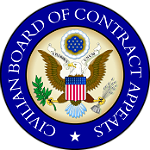
Civilian Board of Contract Appeals
General information about Alternative Dispute Resolution
The Contract Disputes Act of 1978, 41 U.S.C. §§ 7101-7109, directs that boards of contract appeals provide informal, expeditious, and inexpensive ways to resolve contract issues in controversy. Toward this end, the Civilian Board of Contract Appeals (CBCA) encourages parties to consider the use of Alternative Dispute Resolution (ADR) at all stages of a contract dispute: pre-appeal, post-appeal, and post-hearing—whenever the parties believe that a neutral third person may be helpful to the settlement process. The CBCA makes its judges available to serve as ADR Neutrals.
ADR is always voluntary and all parties as well as the ADR Neutral must agree ADR is appropriate for the matter. ADR is not intended to replace a party's right to fully adjudicate its appeal but is meant to supplement that right and provide more flexible choices for parties to resolve their differences. The success of ADR depends on both parties coming to an ADR proceeding well prepared and having a firm, good faith commitment to resolve their differences. Without that commitment, the best structured dispute resolution procedure cannot succeed.
Confidentiality
A CBCA judge who serves as an ADR Neutral will maintain the confidentiality established for ADR under the Board's rules.
Non-CBCA Neutrals
In addition to other ADR procedures, the parties may use ADR Neutrals outside of the CBCA or techniques that do not require direct CBCA involvement.